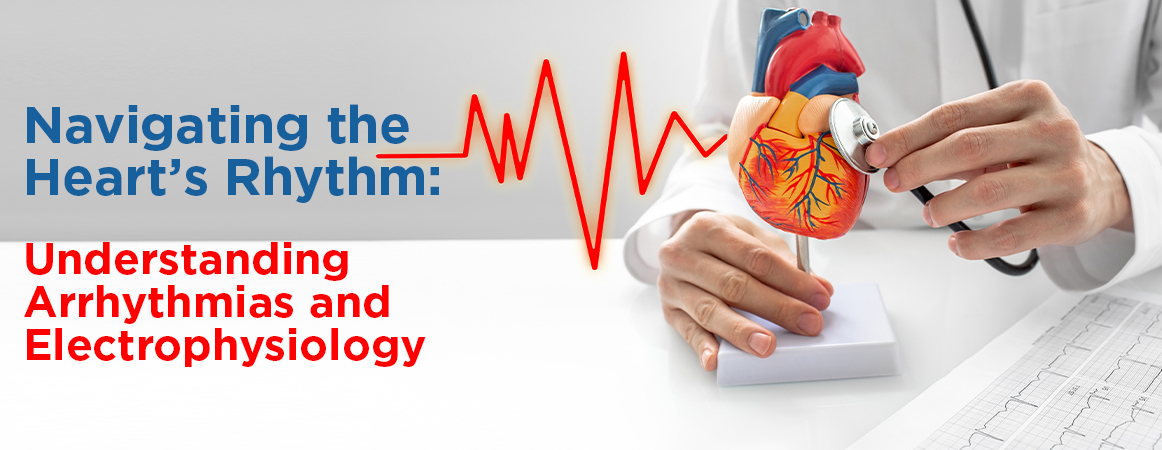Navigating the Heart’s Rhythm: Understanding Arrhythmias and Electrophysiology
The heart’s rhythmic beating is orchestrated by a complex interplay of electrical signals. When this delicate balance is disrupted, arrhythmias may occur, posing potential risks to cardiovascular health. In this article, we explore the intricacies of arrhythmias and the field of electrophysiology. Accessing specialized care from a cardiology hospital in Karachi, under the guidance of top cardiologists, is crucial for the diagnosis and management of arrhythmias.
Understanding Arrhythmias:
Arrhythmias are abnormal heart rhythms that can manifest as irregular heartbeats or palpitations. These disturbances can originate in the atria or ventricles and may result in a heartbeat that is too fast, too slow, or irregular.
Types of Arrhythmias:
- Atrial Fibrillation (AFib): AFib is a common arrhythmia where the atria quiver instead of contracting effectively, leading to an irregular and often rapid heartbeat.
- Atrial Flutter: Similar to AFib, atrial flutter involves rapid and regular contractions in the atria, affecting the heart’s rhythm.
- Bradycardia: Bradycardia is characterized by a heart rate that is too slow, potentially leading to insufficient blood flow.
- Tachycardia: Tachycardia involves an excessively fast heart rate, compromising the heart’s efficiency.
Causes of Arrhythmias:
- Heart Disease: Underlying heart conditions, such as coronary artery disease or heart valve disorders, can contribute to arrhythmias.
- High Blood Pressure: Hypertension places strain on the heart, increasing the risk of arrhythmias.
- Diabetes: Diabetes is associated with an elevated risk of developing arrhythmias due to its impact on blood vessels and the heart.
- Smoking and Alcohol: Lifestyle factors like smoking and excessive alcohol consumption can contribute to the onset of arrhythmias.
- Genetics: Family history plays a role, and certain genetic factors may predispose individuals to arrhythmias.
Symptoms of Arrhythmias:
- Palpitations: Irregular heartbeats or a fluttering sensation in the chest.
- Dizziness or Lightheadedness: Insufficient blood flow to the brain can result in dizziness or fainting.
- Shortness of Breath: Arrhythmias may cause difficulty breathing, especially during physical activity.
- Chest Discomfort: Some individuals may experience chest pain or discomfort.
The Role of Electrophysiology:
Electrophysiology is a specialized field within cardiology that focuses on studying and treating heart rhythm disorders. This involves assessing the electrical activity of the heart and pinpointing the origin of arrhythmias.
Diagnostic Tools in Electrophysiology:
- Electrocardiogram (ECG or EKG): An ECG records the heart’s electrical activity, helping identify irregularities.
- Holter Monitor: It is a portable device that records continuous ECG data over 24 to 48 hours, aiding in the detection of intermittent arrhythmias.
- Event Monitor: Similar to a Holter monitor, an event monitor is worn for an extended period, but it only records when activated by the individual when symptoms occur.
- Electrophysiology Study (EPS): Invasive procedures, such as an EPS, involve placing catheters inside the heart to study its electrical activity directly.
Treatment Options for Arrhythmias:
- Medications: Antiarrhythmic medications help regulate heart rhythms by influencing the electrical signals in the heart.
- Catheter Ablation: In this procedure, catheters are used to eliminate or interrupt abnormal electrical pathways causing arrhythmias.
- Implantable Devices: Devices like pacemakers or implantable cardioverter-defibrillators (ICDs) can help regulate heart rhythm and provide life-saving interventions when needed.
- Lifestyle Modifications: Adopting a heart-healthy lifestyle, including a balanced diet, regular exercise, and smoking cessation, can significantly reduce the frequency and severity of arrhythmias.
The Importance of Specialized Care:
- Cardiology Hospital in Karachi: Accessing a cardiology hospital in Karachi, such as MMI Cardiac Hospital, Karachi, with specialized electrophysiology services is crucial for accurate diagnosis and effective treatment of arrhythmias.
- Top Cardiologist in Karachi: Consultation with top cardiologists in Karachi at MMI Cardio Hospital, Karachi ensures expert evaluation and personalized treatment plans tailored to each patient’s unique needs.
Conclusion:
Arrhythmias pose significant challenges to cardiovascular health, underscoring the importance of specialized care and expert guidance. Seeking consultation from top cardiologists in Karachi, particularly within a cardiology hospital equipped with advanced electrophysiology services, is vital for accurate diagnosis and effective treatment. With ongoing research and innovative approaches in electrophysiology, individuals diagnosed with arrhythmias can benefit from tailored treatment plans, lifestyle modifications, and, ultimately, a path to better heart health.


